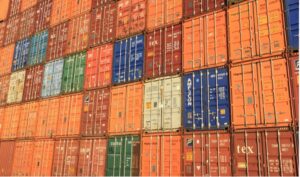China is one of the world’s largest exporters, offering a wide range of products at competitive prices. Many businesses choose to import from China to take advantage of the lower costs, higher quality, and greater variety of goods available. However, shipping from China to the United Kingdom can be a complex and challenging process, involving various factors such as logistics, customs, fees, and regulations. In this article, we will provide an overview of the main aspects of shipping from China to the United Kingdom, and offer some tips to help you make the most of your international trade.
Why businesses choose to import from China

There are many reasons why businesses choose to import from China, such as:
- Cost savings: China has a large and efficient manufacturing sector, which can produce goods at lower costs than many other countries. By importing from China, businesses can reduce their production expenses, increase their profit margins, and offer more competitive prices to their customers.
- Quality improvement: China has invested heavily in improving its technology, infrastructure, and quality standards, resulting in higher-quality products that meet or exceed international expectations. By importing from China, businesses can access goods that are durable, reliable, and consistent in quality.
- Variety expansion: China offers a vast and diverse range of products, from electronics and machinery to clothing and furniture. By importing from China, businesses can expand their product portfolio, cater to different customer segments, and differentiate themselves from their competitors.
- Market access: China has a huge and growing domestic market, with over 1.4 billion consumers and a rising middle class. By importing from China, businesses can establish relationships with Chinese suppliers, gain insights into the local market, and explore opportunities for exporting their own products to China.
Understanding the logistics of shipping from China to the United Kingdom
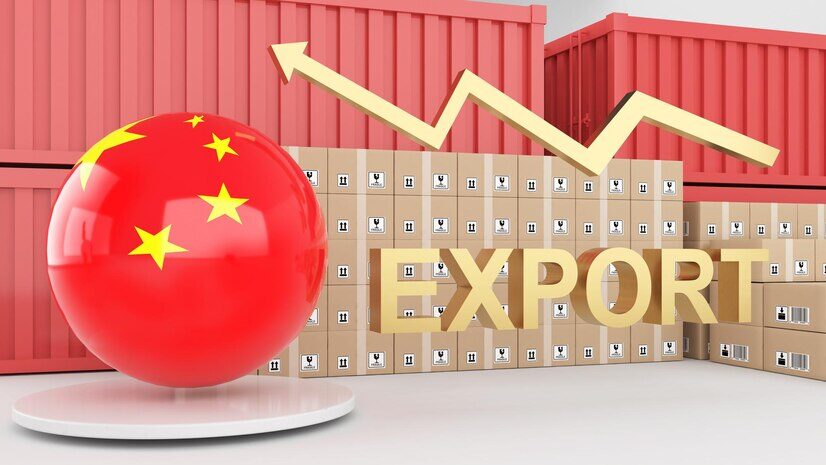
Shipping from China to the United Kingdom involves several steps, such as:
- Finding a supplier: The first step is to find a suitable supplier in China who can provide the products you need. You can use online platforms such as Alibaba, Global Sources, or Made-in-China to search for suppliers, or attend trade fairs and exhibitions in China or the United Kingdom to meet them in person. You should verify the supplier’s credentials, reputation, and quality before placing an order, and negotiate the terms and conditions of the contract, such as the price, quantity, delivery time, payment method, and warranty.
- Choosing a shipping option: The next step is to choose a shipping option that suits your needs and budget. There are three main shipping options: air freight, sea freight, and courier services. Each option has its own advantages and disadvantages, depending on the factors such as the weight, volume, value, urgency, and destination of your shipment. Here is a brief comparison of the three options:
Table
| Shipping option | Air freight | Sea freight | Courier services |
|---|---|---|---|
| Speed | Fastest (3-7 days) | Slowest (30-40 days) | Fast (5-10 days) |
| Cost | Most expensive | Cheapest | Moderate |
| Reliability | High | Low | High |
| Suitability | Small, light, valuable, or urgent shipments | Large, heavy, or low-value shipments | Small, light, or medium-value shipments |
- Preparing the documents: The third step is to prepare the documents required for shipping from China to the United Kingdom. These documents include:
- Commercial invoice: This is a document that shows the details of the transaction, such as the seller, buyer, product description, quantity, price, and payment terms. It is used for customs clearance, taxation, and payment purposes.
- Packing list: This is a document that shows the details of the packaging, such as the number, weight, and dimensions of the packages, and the contents of each package. It is used for customs inspection, loading, and unloading purposes.
- Bill of lading (BOL): This is a document that shows the details of the shipment, such as the carrier, consignor, consignee, origin, destination, and mode of transport. It is used as a contract of carriage, a receipt of goods, and a proof of ownership.
- Certificate of origin (COO): This is a document that shows the origin of the goods, such as the country where they were manufactured or produced. It is used for customs clearance, tariff, and trade agreement purposes.
- Other documents: Depending on the type and value of your goods, you may also need other documents, such as a certificate of inspection, a certificate of conformity, a health certificate, or a license. You should check with your supplier, carrier, and customs authorities for the specific requirements of your shipment.
- Clearing the customs: The fourth step is to clear the customs in both China and the United Kingdom. Customs clearance is the process of declaring your goods to the customs authorities, paying the duties and taxes, and obtaining the permission to import or export your goods. Customs clearance can be done by yourself, your supplier, your carrier, or a third-party agent, such as a freight forwarder or a customs broker. You should ensure that your goods comply with the customs regulations, standards, and restrictions of both countries, and that you have all the necessary documents and receipts ready for inspection.
Shipping options: air freight, sea freight, and courier services
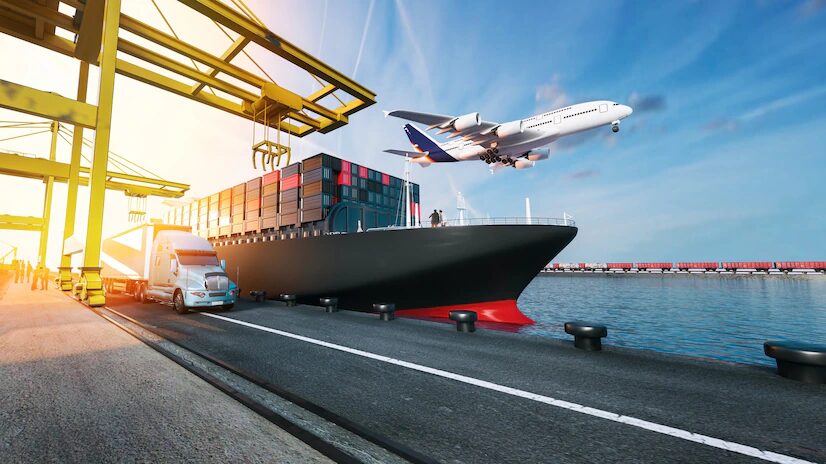
As mentioned above, there are three main shipping options: air freight, sea freight, and courier services. Each option has its own pros and cons, and you should choose the one that best suits your needs and budget. Here is a more detailed explanation of each option:
- Air freight: Air freight is the fastest and most reliable shipping option, but also the most expensive. Air freight is suitable for small, light, valuable, or urgent shipments, such as samples, prototypes, or perishable goods. Air freight is charged by the actual weight or the volumetric weight of the shipment, whichever is higher. The volumetric weight is calculated by multiplying the length, width, and height of the package in centimeters, and dividing by 6,000. The average cost of air freight from China to the United Kingdom is around $5-$10 per kilogram, depending on the carrier, season, and destination. Air freight usually takes 3-7 days to arrive, but may be subject to delays due to weather, security, or customs issues. Air freight shipments are subject to the International Air Transport Association (IATA) rules and regulations, and may require additional documentation or packaging for certain types of goods, such as hazardous materials, liquids, or batteries.
- Sea freight: Sea freight is the cheapest and most eco-friendly shipping option, but also the slowest and least reliable. Sea freight is suitable for large, heavy, or low-value shipments, such as furniture, machinery, or bulk goods. Sea freight is charged by the container size or the cubic meter of the shipment, whichever is higher. The container size can be either 20 feet (33 cubic meters), 40 feet (67 cubic meters), or 40 feet high cube (76 cubic meters). The average cost of sea freight from China to the United Kingdom is around $1,000-$2,000 per container, depending on the carrier, season, and destination. Sea freight usually takes 30-40 days to arrive, but may be subject to delays due to weather, congestion, or customs issues. Sea freight shipments are subject to the International Maritime Organization (IMO) rules and regulations, and may require additional documentation or packaging for certain types of goods, such as dangerous goods, liquids, or temperature-sensitive goods.
- Courier services: Courier services are a fast and convenient shipping option, but also moderately expensive. Courier services are suitable for small, light, or medium-value shipments, such as documents, parcels, or e-commerce goods. Courier services are charged by the actual weight or the volumetric weight of the shipment, whichever is higher. The volumetric weight is calculated by multiplying the length, width, and height of the package in centimeters, and dividing by 5,000. The average cost of courier services from China to the United Kingdom is around $15-$30 per kilogram, depending on the carrier, service level, and destination. Courier services usually take 5-10 days to arrive, but may be subject to delays due to weather, security, or customs issues. Courier services shipments are subject to the carrier’s own rules and regulations, and may require additional documentation or packaging for certain types of goods, such as hazardous materials, liquids, or batteries.
Customs and import regulations when shipping from China to the United Kingdom
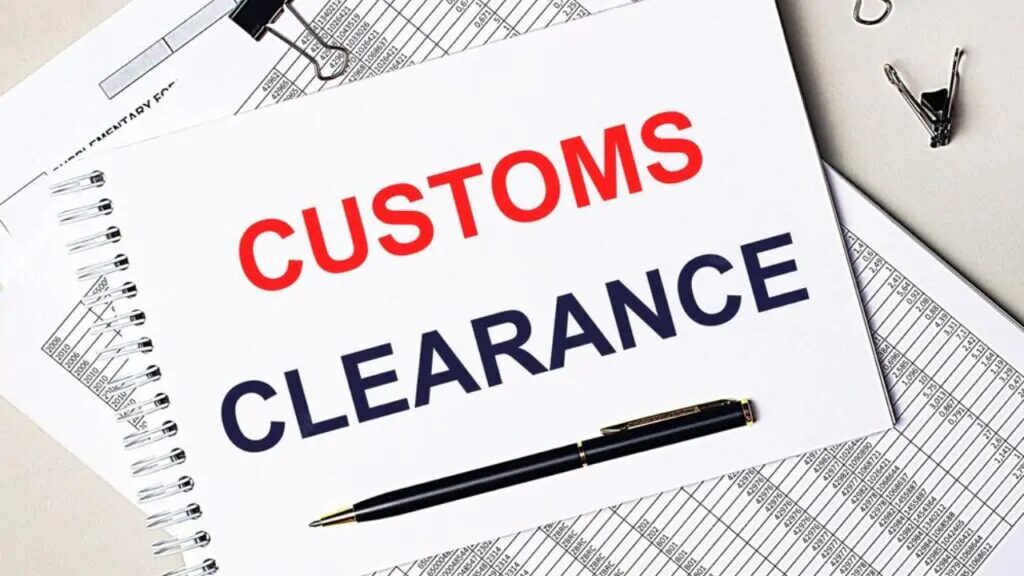
Customs and import regulations are the rules and restrictions that govern the movement of goods across borders. Customs and import regulations vary from country to country, and depend on the type, value, and origin of the goods. Customs and import regulations are important to ensure the safety, security, and compliance of the goods, and to collect the duties and taxes that apply to the goods. Customs and import regulations can affect the cost, time, and complexity of shipping from China to the United Kingdom, and you should be aware of the following aspects:
- Duties and taxes: Duties and taxes are the fees that you have to pay to the customs authorities when importing goods from China to the United Kingdom. Duties and taxes are calculated based on the customs value, the tariff rate, and the value-added tax (VAT) rate of the goods. The customs value is the total amount that you paid for the goods,
- including the shipping cost, the insurance cost, and any other related charges. The tariff rate is the percentage of the customs value that you have to pay as duty, and it depends on the product category and the origin of the goods. The VAT rate is the percentage of the customs value plus the duty that you have to pay as tax, and it depends on the product type and the destination of the goods. The average tariff rate for goods imported from China to the United Kingdom is around 3%, and the average VAT rate is around 20%. However, these rates may vary depending on the specific product and the trade agreement between the two countries. You can use online tools such as Duty Calculator or Simply Duty to estimate the duties and taxes for your shipment, or check with your supplier, carrier, or customs authorities for the exact rates and fees.
- Customs declaration: Customs declaration is the process of submitting your shipment information and documents to the customs authorities, either electronically or manually, before or upon arrival of your goods. Customs declaration is required for all shipments from China to the United Kingdom, regardless of the value or the shipping option. Customs declaration can be done by yourself, your supplier, your carrier, or a third-party agent, such as a freight forwarder or a customs broker. You should ensure that your customs declaration is accurate, complete, and consistent with your documents and receipts, and that you have the necessary authorization or license for your goods. You can use online platforms such as Easyship or Shipa Freight to facilitate your customs declaration, or check with your supplier, carrier, or customs authorities for the specific requirements and procedures.
- Customs inspection: Customs inspection is the process of checking your goods and documents by the customs authorities, either physically or electronically, upon arrival of your goods. Customs inspection is done to verify the compliance, safety, and security of your goods, and to collect the duties and taxes that apply to your goods. Customs inspection is not required for all shipments from China to the United Kingdom, but it is done randomly or selectively based on the risk assessment of your goods. Customs inspection can result in delays, fees, or penalties, depending on the outcome of the inspection. You should ensure that your goods are properly packaged, labeled, and sealed, and that you have all the necessary documents and receipts ready for inspection, and that you cooperate with the customs authorities in case of any issues or queries.
Calculating shipping costs and fees

Shipping costs and fees are the expenses that you have to pay for transporting your goods from China to the United Kingdom. Shipping costs and fees depend on various factors, such as the shipping option, the weight, volume, value, and destination of your goods, and the duties and taxes that apply to your goods. Shipping costs and fees can affect the profitability, competitiveness, and customer satisfaction of your business, and you should be aware of the following aspects:
- Shipping rates: Shipping rates are the prices that you have to pay to the carrier or the courier service for delivering your goods from China to the United Kingdom. Shipping rates vary depending on the carrier, the service level, the season, and the destination of your goods. Shipping rates are usually quoted per kilogram, per cubic meter, or per container, depending on the shipping option. You can use online tools such as Freightos or World Freight Rates to compare and book shipping rates from different carriers or courier services, or check with your supplier, carrier, or courier service for the exact rates and fees.
- Shipping insurance: Shipping insurance is the protection that you can purchase to cover the loss, damage, or theft of your goods during transit. Shipping insurance is optional, but highly recommended, especially for high-value, fragile, or perishable goods. Shipping insurance is usually charged as a percentage of the declared value of your goods, and it depends on the carrier, the courier service, the shipping option, and the type of goods. The average cost of shipping insurance from China to the United Kingdom is around 0.5%-1% of the declared value of your goods, depending on the carrier, the courier service, the shipping option, and the type of goods. You can use online platforms such as Parcel Monkey or Parcel Hero to purchase shipping insurance for your shipment, or check with your supplier, carrier, or courier service for the exact rates and fees.
- Shipping surcharges: Shipping surcharges are the additional fees that you may have to pay to the carrier or the courier service for handling your goods under certain circumstances or conditions. Shipping surcharges vary depending on the carrier, the courier service, the shipping option, and the type of goods. Some common shipping surcharges from China to the United Kingdom are:
- Fuel surcharge: This is a fee that covers the fluctuation of the fuel price for the carrier or the courier service. The fuel surcharge is usually calculated as a percentage of the base shipping rate, and it changes monthly or weekly, depending on the carrier or the courier service. The average fuel surcharge from China to the United Kingdom is around 10%-20% of the base shipping rate, depending on the carrier, the courier service, the shipping option, and the type of goods.
- Remote area surcharge: This is a fee that covers the extra cost of delivering your goods to a remote or hard-to-reach area, such as an island, a mountain, or a rural area. The remote area surcharge is usually calculated as a flat fee per kilogram or per shipment, and it depends on the carrier, the courier service, the shipping option, and the destination of your goods. The average remote area surcharge from China to the United Kingdom is around $0.5-$1 per kilogram or $30-$50 per shipment, depending on the carrier, the courier service, the shipping option, and the destination of your goods.
- Oversize or overweight surcharge: This is a fee that covers the extra cost of handling your goods that exceed the standard size or weight limits of the carrier or the courier service. The oversize or overweight surcharge is usually calculated as a flat fee per kilogram or per shipment, and it depends on the carrier, the courier service, the shipping option, and the type of goods. The average oversize or overweight surcharge from China to the United Kingdom is around $1-$2 per kilogram or $50-$100 per shipment, depending on the carrier, the courier service, the shipping option, and the type of goods.
- Other costs and fees: Depending on the type and value of your goods, you may also have to pay other costs and fees, such as:
- Customs duties and taxes: As mentioned above, these are the fees that you have to pay to the customs authorities when importing goods from China to the United Kingdom. Customs duties and taxes are calculated based on the customs value, the tariff rate, and the VAT rate of your goods, and they vary depending on the product category and the origin of your goods. You can use online tools such as Duty Calculator or Simply Duty to estimate the customs duties and taxes for your shipment, or check with your supplier, carrier, or customs authorities for the exact rates and fees.
- Customs clearance fees: These are the fees that you have to pay to the carrier, the courier service, or a third-party agent, such as a freight forwarder or a customs broker, for handling your customs declaration and clearance. Customs clearance fees vary depending on the carrier, the courier service, the shipping option, and the type and value of your goods. The average customs clearance fee from China to the United Kingdom is around $50-$100 per shipment, depending on the carrier, the courier service, the shipping option, and the type and value of your goods.
- Storage fees: These are the fees that you have to pay to the carrier, the courier service, or a third-party agent, such as a freight forwarder or a customs broker, for storing your goods at the origin, the destination, or a transit point, in case of any delays, issues, or disputes. Storage fees vary depending on the carrier, the courier service, the shipping option, and the type and value of your goods. The average storage fee from China to the United Kingdom is around $0.5-$1 per kilogram or $10-$20 per cubic meter per day, depending on the carrier, the courier service, the shipping option, and the type and value of your goods.
Packaging and labeling requirements for international shipping

Packaging and labeling are the processes of preparing your goods for shipping, by wrapping, protecting, and identifying them. Packaging and labeling are important to ensure the safety, security, and compliance of your goods, and to avoid any delays, fees, or penalties during transit. Packaging and labeling can affect the cost, time, and complexity of shipping from China to the United Kingdom, and you should be aware of the following aspects:
- Packaging materials: Packaging materials are the materials that you use to wrap and protect your goods, such as boxes, bags, pallets, crates, or containers. Packaging materials should be strong, durable, and suitable for the type, size, weight, and value of your goods, and for the shipping option that you choose. Packaging materials should also be eco-friendly, recyclable, and compliant with the international standards and regulations,
- such as the International Organization for Standardization (ISO), the International Plant Protection Convention (IPPC), or the International Maritime Dangerous Goods (IMDG) Code. You can use online platforms such as Packaging Hub or Packaging World to find and purchase packaging materials for your shipment, or check with your supplier, carrier, or courier service for the exact requirements and recommendations.
- Packaging methods: Packaging methods are the ways that you use to wrap and protect your goods, such as filling, cushioning, sealing, or stacking. Packaging methods should be effective, efficient, and suitable for the type, size, weight, and value of your goods, and for the shipping option that you choose. Packaging methods should also be eco-friendly, recyclable, and compliant with the international standards and regulations, such as the International Safe Transit Association (ISTA), the International Air Transport Association (IATA), or the International Maritime Organization (IMO). You can use online guides such as FedEx Packaging Guide or UPS Packaging Guide to learn and apply packaging methods for your shipment, or check with your supplier, carrier, or courier service for the exact requirements and recommendations.
- Labeling information: Labeling information is the information that you use to identify your goods, such as the sender, receiver, product description, quantity, weight, dimensions, origin, destination, and barcode. Labeling information should be clear, accurate, and consistent with your documents and receipts, and with the shipping option that you choose. Labeling information should also be eco-friendly, recyclable, and compliant with the international standards and regulations, such as the Universal Postal Union (UPU), the International Air Transport Association (IATA), or the International Maritime Organization (IMO). You can use online tools such as Easy Labeler or Label Maker to create and print labeling information for your shipment, or check with your supplier, carrier, or courier service for the exact requirements and recommendations.
Choosing the right shipping company or freight forwarder

A shipping company or a freight forwarder is a third-party agent that can help you with shipping your goods from China to the United Kingdom. A shipping company or a freight forwarder can offer you various services, such as:
- Finding a supplier: A shipping company or a freight forwarder can help you find a suitable supplier in China who can provide the products you need. They can also help you verify the supplier’s credentials, reputation, and quality, and negotiate the terms and conditions of the contract, such as the price, quantity, delivery time, payment method, and warranty.
- Choosing a shipping option: A shipping company or a freight forwarder can help you choose a shipping option that suits your needs and budget. They can also help you compare and book shipping rates from different carriers or courier services, and purchase shipping insurance for your shipment.
- Preparing the documents: A shipping company or a freight forwarder can help you prepare the documents required for shipping from China to the United Kingdom. They can also help you obtain the necessary authorization or license for your goods, and facilitate your customs declaration and clearance.
- Clearing the customs: A shipping company or a freight forwarder can help you clear the customs in both China and the United Kingdom. They can also help you pay the duties and taxes that apply to your goods, and deal with any issues or disputes that may arise during the customs inspection.
- Tracking and managing your shipment: A shipping company or a freight forwarder can help you track and manage your shipment from China to the United Kingdom. They can also help you store your goods at the origin, the destination, or a transit point, in case of any delays, issues, or disputes, and deliver your goods to your door or to a pick-up point.
Choosing the right shipping company or freight forwarder can make a big difference in the cost, time, and quality of your shipping from China to the United Kingdom. You should consider the following factors when choosing a shipping company or a freight forwarder:
- Experience and reputation: You should choose a shipping company or a freight forwarder that has experience and reputation in shipping from China to the United Kingdom. You should check their credentials, reviews, and ratings, and ask for references or testimonials from their previous or current customers. You should also check their membership or accreditation with the relevant industry associations or organizations, such as the International Federation of Freight Forwarders Associations (FIATA), the British International Freight Association (BIFA), or the China International Freight Forwarders Association (CIFA).
- Services and rates: You should choose a shipping company or a freight forwarder that can offer you the services and rates that suit your needs and budget. You should compare their services and rates with other shipping companies or freight forwarders, and ask for a detailed and transparent quotation or invoice, that includes all the costs and fees involved in your shipment. You should also check their terms and conditions, such as the payment method, the delivery time, the warranty, and the liability.
- Communication and customer service: You should choose a shipping company or a freight forwarder that can communicate and provide customer service in your language and time zone. You should check their availability, responsiveness, and professionalism, and ask for a dedicated contact person or a team that can handle your shipment. You should also check their feedback and complaint mechanism, and their dispute resolution process.
You can use online platforms such as Freightos or Shipa Freight to find and compare shipping companies or freight forwarders for your shipment, or check with your supplier, carrier, or courier service for their recommendations.
Tracking and managing your shipment
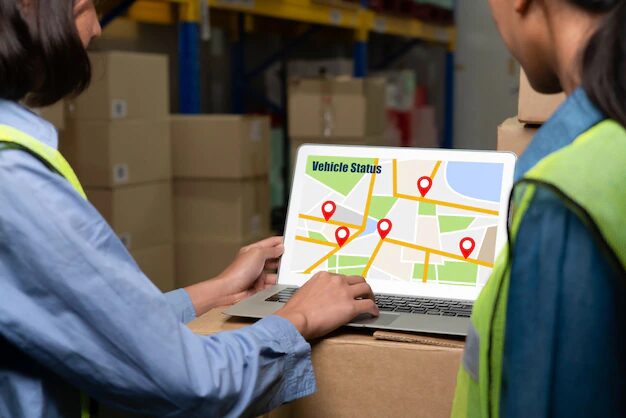
Tracking and managing your shipment is the process of monitoring and controlling the status and progress of your goods from China to the United Kingdom. Tracking and managing your shipment is important to ensure the safety, security, and compliance of your goods, and to avoid any delays, fees, or penalties during transit. Tracking and managing your shipment can also help you plan and prepare for the arrival and delivery of your goods, and to deal with any issues or disputes that may arise during the shipping process. You should be aware of the following aspects when tracking and managing your shipment:
- Tracking number: A tracking number is a unique code that identifies your shipment and allows you to track and trace your goods from China to the United Kingdom. A tracking number is usually provided by the carrier, the courier service, or the shipping company or freight forwarder, and it is usually printed on the label or the document of your shipment. You can use online tools such as 17Track or Track24 to track and trace your shipment using your tracking number, or check with your supplier, carrier, courier service, or shipping company or freight forwarder for the exact tracking information.
- Tracking status: A tracking status is a message that indicates the current location and condition of your goods from China to the United Kingdom. A tracking status is usually updated by the carrier, the courier service, or the shipping company or freight forwarder, and it is usually displayed on the online tracking tool or the website of your shipment. You can use online guides such as FedEx Tracking Status Guide or UPS Tracking Status Guide to understand and interpret the tracking status of your shipment, or check with your supplier, carrier, courier service, or shipping company or freight forwarder for the exact tracking status.
- Tracking alerts: A tracking alert is a notification that informs you of any changes or updates in the status and progress of your goods from China to the United Kingdom. A tracking alert is usually sent by the carrier, the courier service, or the shipping company or freight forwarder, and it is usually delivered by email, text message, phone call, or app notification. You can use online platforms such as Parcel Monitor or Aftership to receive and manage tracking alerts for your shipment, or check with your supplier, carrier, courier service, or shipping company or freight forwarder for the exact tracking alerts.
Tips for successful shipping from China to the United Kingdom

Shipping from China to the United Kingdom can be a rewarding and profitable experience for your business, if you follow the best practices and avoid the common pitfalls. Here are some tips to help you achieve successful shipping from China to the United Kingdom:
- Do your research: Before you start shipping from China to the United Kingdom, you should do your research and gather as much information as possible about the products, suppliers, carriers, courier services, shipping options, customs regulations, duties and taxes, packaging and labeling requirements, and shipping costs and fees that apply to your shipment. You should also check the market demand, competition, and regulations for your products in the United Kingdom, and adjust your pricing, marketing, and distribution strategies accordingly.
- Plan ahead: Once you have done your research, you should plan ahead and prepare your shipment in advance. You should choose a reliable and reputable supplier, carrier, courier service, or shipping company or freight forwarder, and negotiate the best terms and conditions for your contract, such as the price, quantity, delivery time, payment method, and warranty. You should also choose a suitable shipping option, and calculate the shipping costs and fees, including the duties.



